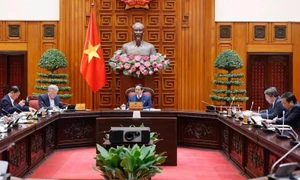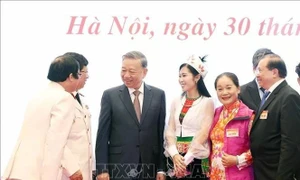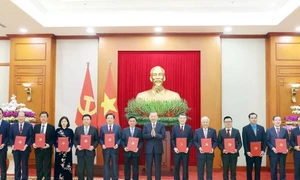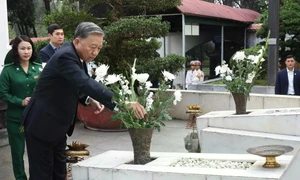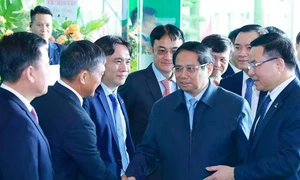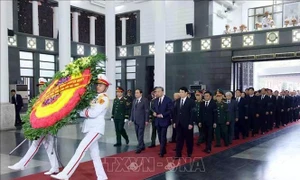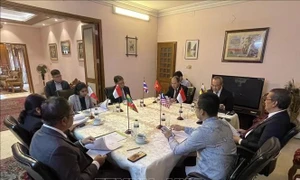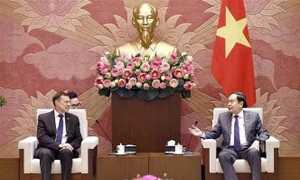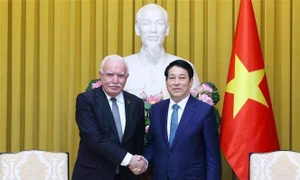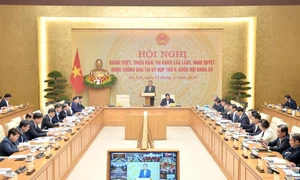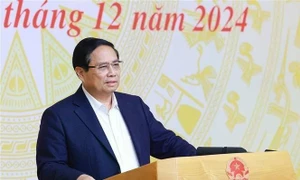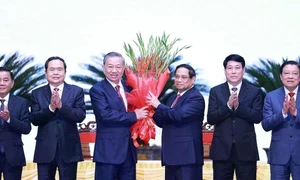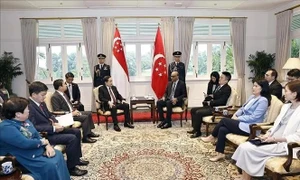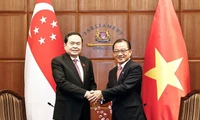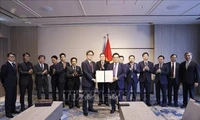
Labour productivity is a comprehensive economic indicator that can reflect the development level of a country as well as its sectors and locality, Prime Minister Pham Minh Chinh said as he attended a national conference of the Viet Nam General Confederation of Labour on Sunday.
The event was an opportunity for government leaders and labourers to discuss bottlenecks and solutions to improve Viet Nam’s labour productivity.
According to the General Statistics Office, the country’s labour productivity has seen an upward trend in recent years, with an increase of 4.8 per cent in 2022 and 3.65 per cent in 2023.
However, the average national labour productivity in 2021-2023 fell short of its goal of 5.5 per cent on average. Experts also said there was ample room for improvement.
Phung Thị Hanh, a Garment 10 Corporation worker with exceptional productivity of 150 per cent, suggested that the government and relevant departments should issue policies that offer worker training and upscale this capacity-building model to businesses where women make up a large proportion of the workforce.
Mai Thien An, a union member of Intel Products Viet Nam also stressed that early training should be provided in school to shape the future labourers’ mindset and discipline in the workplace.
Financial policies should also be put in place to allow the grassroots unions to invest in training, communication campaigns as well as rewards and recognition for remarkable performance, he added.
Meanwhile, Viettel Group’s human resources director Vu Thị Mai highlighted labour force quality and technology in productivity improvement.
Encouraging policies that incentivise innovation and growth among workers are also an important factor, she said.
During the discussion with union members at the event, PM Chinh emphasised that productivity improvement is one of the key solutions for developing countries to grow rapidly and sustainably while avoiding the middle-income trap.
Putting the Party and government resolutions into practice, the PM has promulgated multiple policies, strategies and plans on productivity, notably the national programme on enhancing labour productivity by 2030 signed into effect on November 8 last year.
Addressing the event, PM Chinh called for the national labour confederation, its members and all workers to implement three ‘enhancements’, three ‘pioneer actions’ and three ‘breakthroughs’ to excel in labour productivity.
The three ‘enhancements’ include perfecting the legal framework and environment for business, investment, start-up and innovation; mobilising and utilising resources for growth; and enhancing human resources development.
Meanwhile, the ‘pioneer actions’ should be implemented for digital transformation, green transformation, circular economy, sharing economy, knowledge economy as well as other emerging sectors; in international integration and leveraging advantages to optimise operations; and in labour productivity campaigns, especially in management and technical improvement initiatives.
The three ‘breakthroughs’ will focus on human resources development and vocational training; science and technology advancements; and workplace enhancement.
PM Chinh also stressed that economic growth and labour productivity must align with macroeconomic stability, inflation control as well as institutional and infrastructure strategies.
He also requested the Việt Nam General Confederation of Labour to act on its role as the representative of the labour force in social management and policy dialogues.
The federation is also required to work with the Ministry of Labour, Invalids and Social Affairs to develop capacity training and support programmes for workers, while also actively engaging in conversations with investors, employers and their staff for solutions. — VNS



